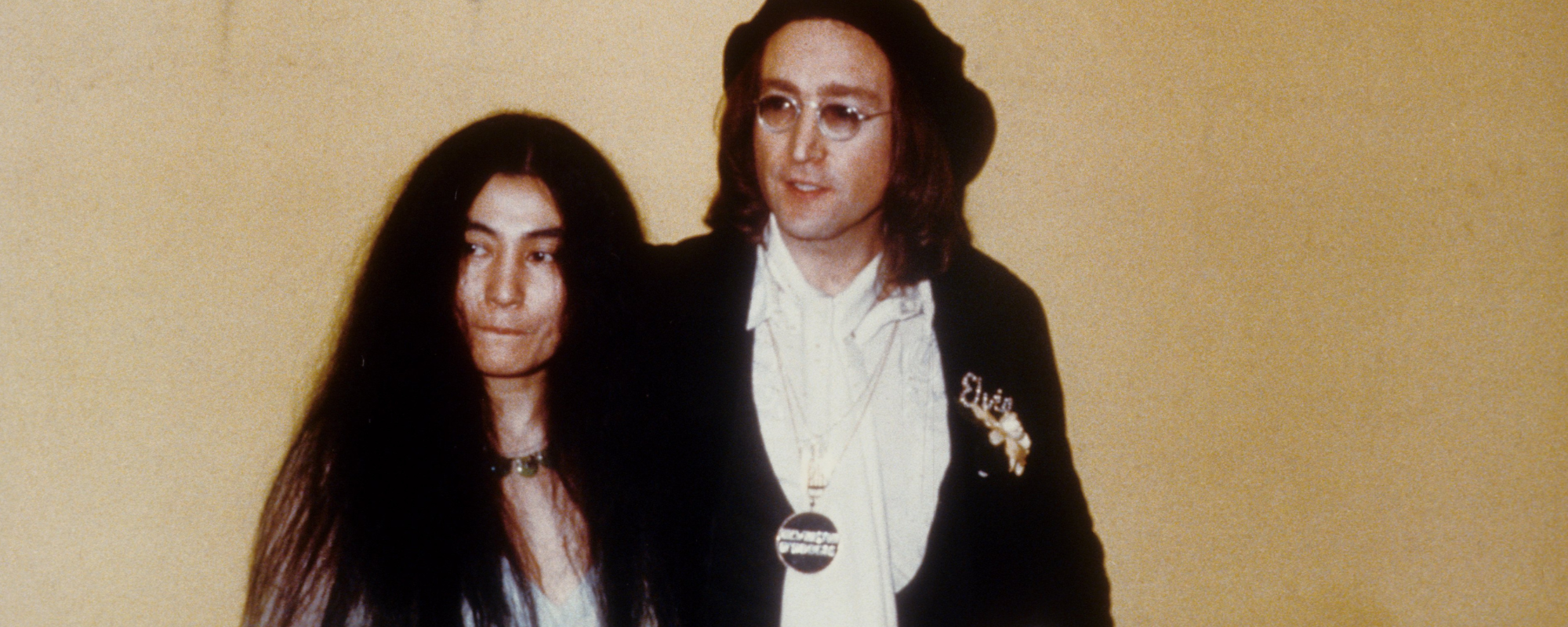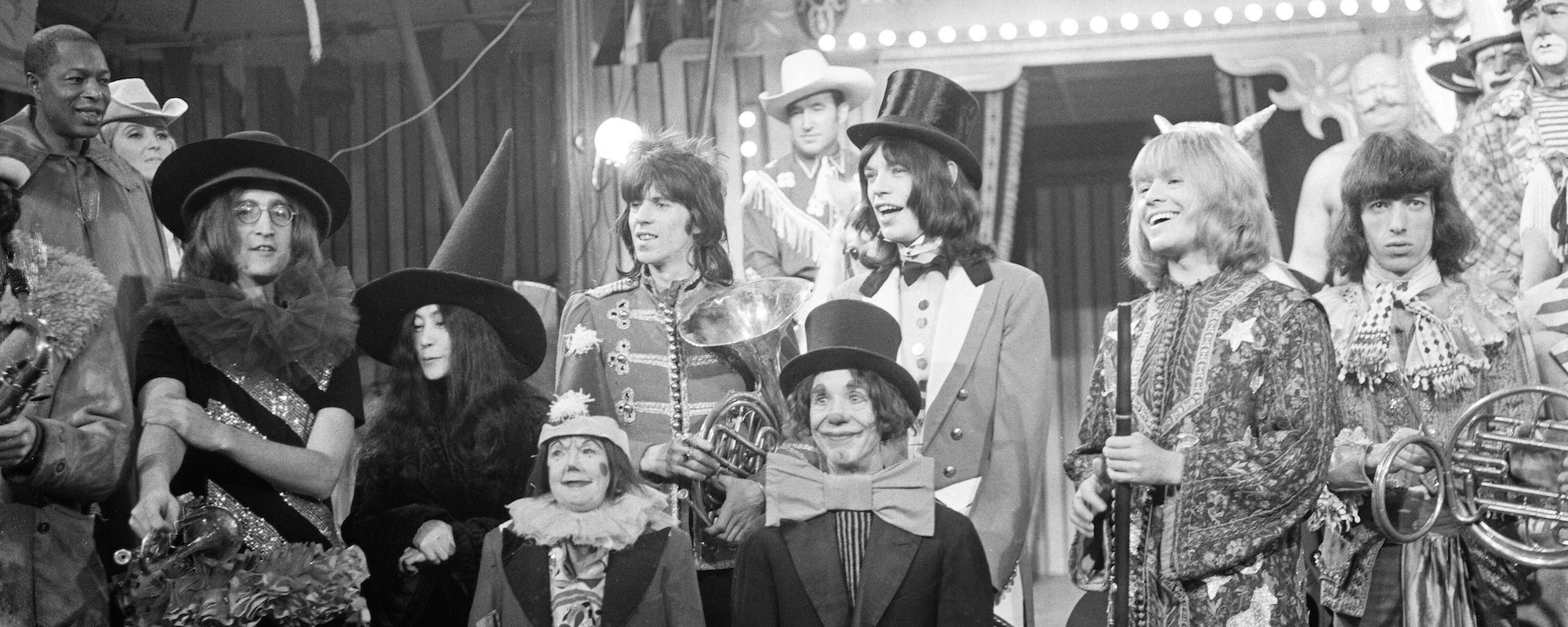Whether it was an artist’s intuition or simply the predictions of a cynic, John Lennon knew that radio stations would ban one Beatles song, in particular, as soon as they got wind of the lyrical content. In fact, Lennon’s convictions were so strong that he insisted Apple press the vinyl before they started any publicity for the track.
Videos by American Songwriter
As it turns out, Lennon was right. Although the Beatle wrote the “Ballad of John and Yoko” as a romantic ode to his wife, Yoko Ono, the creative liberties he took with the song’s chorus led to radio stations across the U.S. and U.K. banning the track from airplay—just as he expected they would. (We should also note that this was not the first Beatles song that radio stations banned in the 1960s.)
Lennon and Ono’s Journalistic Love Song
John Lennon married his second wife, Yoko Ono, on March 20, 1969, in Gibraltar, Spain. The events leading up to the ceremony were tumultuous at best, as Lennon describes in the “Ballad of John and Yoko.” Opting to forgo metaphors and write plainly, Lennon described how he and his future bride tried to wed in various countries in Europe to no avail.
Eventually, Lennon found a solution, which he describes in the song’s second verse. Peter Brown called to say, “You can make it okay. You can get married in Gibraltar, near Spain.” Indeed, Apple employee Peter Brown advised the couple to try going to Spain instead. The impromptu visit was successful, and Lennon and Ono wed.
“It was very romantic,” Lennon told Rolling Stone two years later. “It’s all in the song. If you want to know how it happened, it’s in there. Gibraltar was like a little sunny dream. I couldn’t find a white suit. I had sort of off-white corduroy trousers and a white jacket. Yoko had all white on.”
Why John Lennon Knew Radio Stations Would Ban The Song
The verses of “Ballad of John and Yoko” were innocent enough. Throughout the song, Lennon describes the various stops the couple made before and after their wedding: Southampton, Paris, Vienna, and finally, their return trip to London. The men from the press said, “We wish you success. It’s good to have the both of you back, Lennon sings in the last verse. The controversy that Lennon predicted was in the chorus.
Christ, you know it ain’t easy
You know how hard it can be
The way things are going,
They’re gonna crucify me
Lennon’s hook was a direct reference to a previous Beatles scandal in the mid-1960s when Lennon compared his rock band to Jesus Christ. The offhand remarks prompted a mass public burning of Beatles records in the United States. Lennon would later address the controversy, saying, “I’m sorry I opened my mouth. I was not saying we are greater or better” (via The Beatles Forever). However, only a handful of years later, it appeared that Lennon no longer worried about keeping his mouth shut.
The Beatles Did Some Preemptive Damage Control Pre-Release
Before Apple released “Ballad of John and Yoko,” which, interestingly, only featured Lennon and bandmate Paul McCartney, Lennon did some preemptive damage control with his label. “Tony,” Lennon wrote in a memo to Apple plugger Tony Bramwell, “no pre-publicity on “Ballad of John & Yoko,” especially the “Christ” bit. Don’t play it round too much, or you’ll frighten people. Get it pressed first” (via Beatles Bible).
While the song’s reception wasn’t all negative, there was certainly truth to Lennon’s hesitation. The single peaked at No. 1 on the U.K. charts, but other countries weren’t so receptive. Several radio stations in the U.S. banned the song for using the words “Jesus Christ” and “crucify.” Australian radio stations censored the word “Christ,” and the Spanish government denounced the song over the phrase “Gibraltar near Spain” due to territorial disputes between Spain and the United Kingdom.
Nevertheless, Lennon always spoke highly of his folk ballad describing his love story with Yoko Ono. “It’s like an old-time ballad,” Lennon told New Musical Express in 1969. “It’s the story of us going along getting married, going to Paris, going to Amsterdam, all that. It’s ‘Johnny B. Paperback Writer,’” referencing both a former Beatles track, “Paperback Writer,” and the iconic track “Johnny B. Goode” by Chuck Berry, whom Lennon often cited as a major musical influence.
Photo by George Stroud/Express/Getty Images













Leave a Reply
Only members can comment. Become a member. Already a member? Log in.